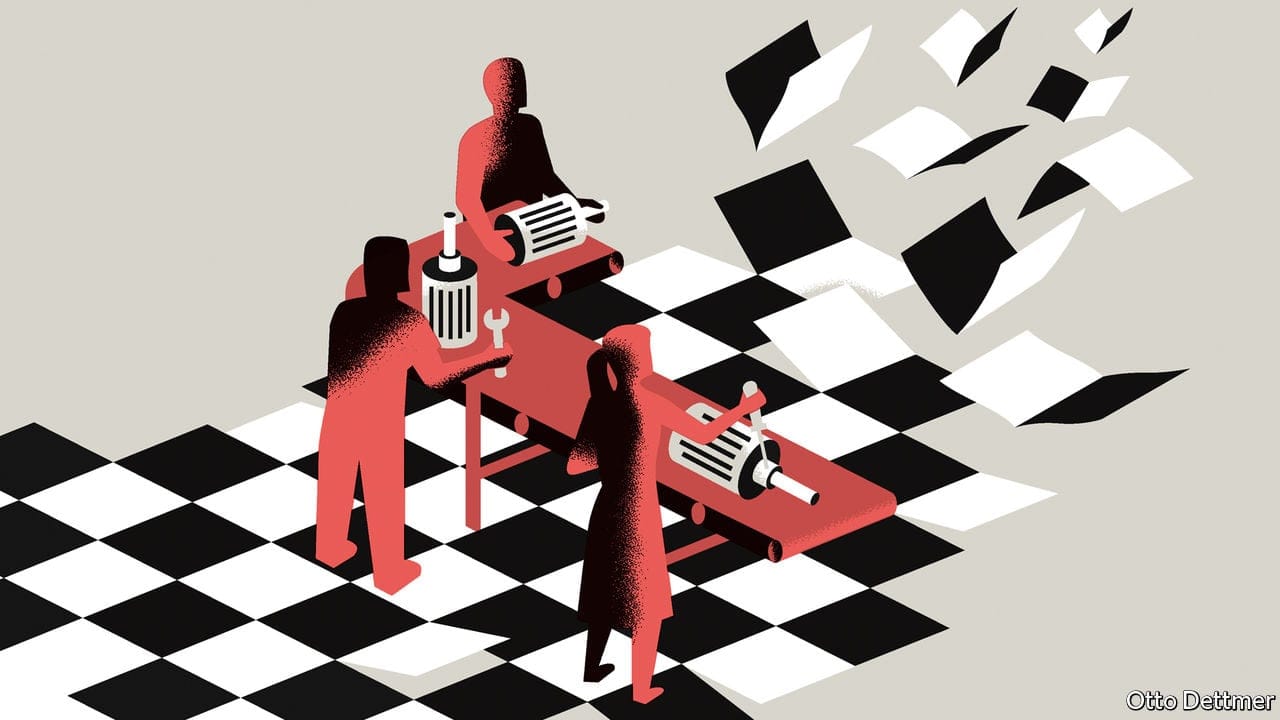Who bears the burden of a corporate tax?
Though aimed at shareholders, some of the costs fall on workers

JOE BIDEN wants to rebuild America, and he reckons that American firms can help foot the bill. Central to the president’s grand infrastructure-investment push is a plan to raise the tax rate on corporate income from 21% to 28% (though he has hinted he may settle for less). Although the administration pitches its tax proposals as a way to redress the problem that “those at the top are not doing their part”, opponents warn that corporate-tax rises do not simply fall on wealthy shareholders, but also shrink the pay packets of the working people the president claims to champion. In fact, workers often do bear some of the burden of increases in corporate taxes—though understanding just how much is a question that continues to vex economists. Nonetheless, the details of Mr Biden’s tax plans suggest that they may prove more worker-friendly than the usual effort to squeeze juice from Apple.
This article appeared in the Finance & economics section of the print edition under the headline “When the Inc runs”
Finance & economics May 15th 2021
More from Finance & economics

Europe’s economic growth is extremely fragile
Risk is concentrated in one country: Germany

How vulnerable is Israel to sanctions?
So far, measures have had little effect. That could change

Why companies get inflation wrong
Bosses should pay less attention to the media
What is behind China’s perplexing bond-market intervention?
The central bank seems to think the government’s debt is too popular
How to invest in chaotic markets
Contrary to popular wisdom, even retail investors should pay attention to volatility
Vladimir Putin spends big—and sends Russia’s economy soaring
How long can the party last?
